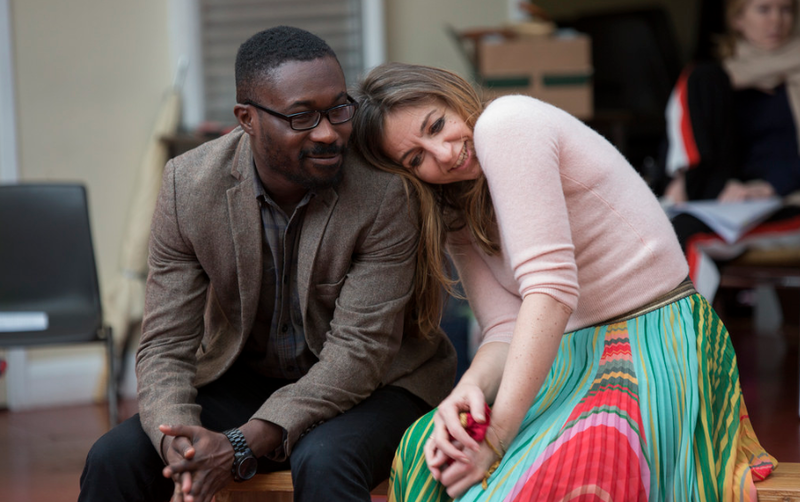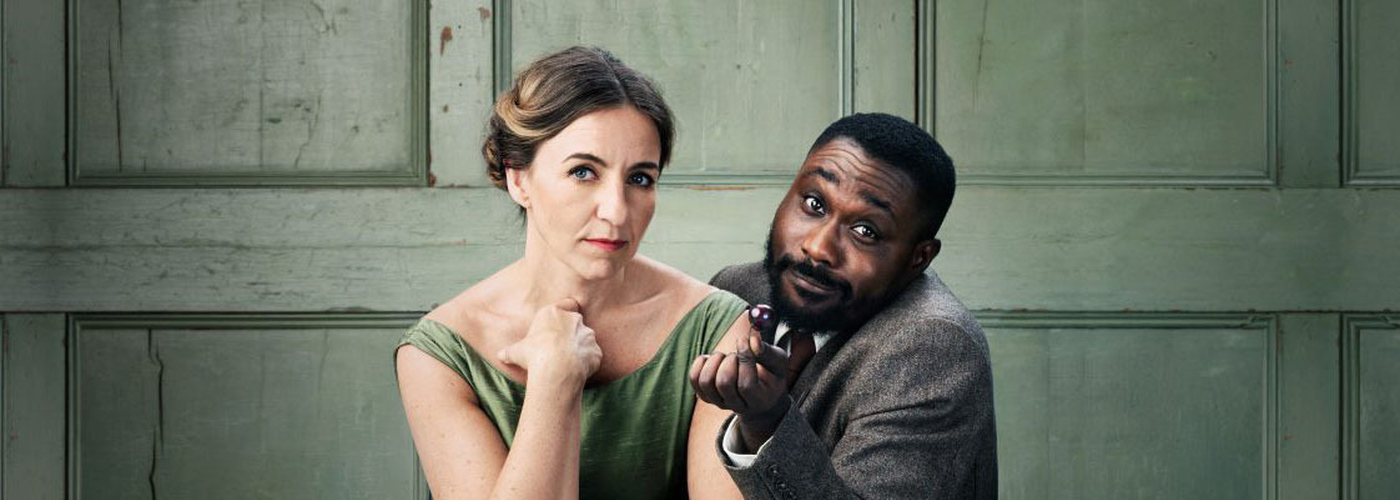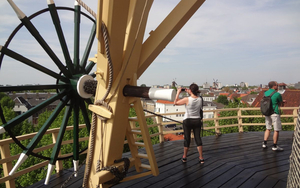Andrea Sandor on why Chekhov’s final play is one you need to see
****
There are plenty of reviews on Micheal Boyd’s production of The Cherry Orchard, but few touch on the most important aspect of the play: its relevance. They describe the acting, staging, and praise Rory Mullarkey’s translation, but few delve deeper. Fair enough if you’ve bought into the idea that Chekov’s final play is worth seeing - but perhaps not everyone has. That’s the conclusion I came to after sitting in the third tier of the Exchange’s theatre in the round, the fantastic octopus spaceship with staircases stretching out like tendrils in the classical style atrium where cotton was once traded.
From my high vantage point, I noted a number of vacant seats, a contrast to the full auditorium that Frankenstein attracted in its second week. But The Cherry Orchard is a play you need to see. Yes it was written in 1903, but it’s about now. And, as other reviews will tell you, it’s expertly performed and accessible.
When I say The Cherry Orchard is about now, I’m only being a little hyperbolic. It takes place during a period of radical political and social change that saw historical elites challenged and upended with the emergence of a new social order. Merchants usurped aristocrats as masters of the universe and the play lays out the myopia, stupor and denial of the elites, incapable of waking up to the changing tide.
The play is set in Russia, at the turn of the twentieth century, forty years since serfdom was abolished and just two decades away from the Revolution and toppling of the monarchy. Madame Ranyevskaya is forced to sell her estate to pay off her debts, refusing to entertain her friend Lopakhin’s proposal of chopping down their nationally famous cherry orchard to be developed into holiday cottages. Lopakhin is the wealthy, industrious son of one of the family’s former serfs. He cares deeply for Ranyevskaya, who was kind to him after his father beat him, and wants to save her. However, their opposing social positions mean they can only talk past each other; one’s ascendancy is predicated on the other’s decline.
Kirsty Bushell gives an astonishing performance as the fallen aristocrat: entitled, frivolous, seductive and intelligent. She is infuriating - spending money she doesn’t have, tearful, and blind to the reality of her situation - and yet deeply sympathetic. Jude Owusu convincingly plays the emergent Lopakhin, an energetic businessman, breaking free from the shackles of his past.

Countering both Ranyevskaya’s privilege and Lopakhin’s materialism is Peter Trofimov, the ‘eternal student’, sensitively portrayed by Enyi Okoronkwo. The son of a chemist, he articulates the ideological core of the play, expressing sentiments that are surprisingly contemporary:
“The kind of Russian intellectuals I know … they talk of nothing but weighty issues and they discuss abstract problems, while all the time everyone knows the workers are abominably fed and sleep without proper bedding ... Tell me, where are those children’s nurseries that there’s all this talk about? Where are the libraries?”
Dissatisfaction with liberal elites, the emergence of the zero-hour contract gig economy, the 450+ UK libraries that have closed since 2010… it’s hard not to think of the present when you listen to Trofimov’s words. In looking to the future, he says:
“All that now eludes us will one day be well within our grasp, but, as I say, we must work and we must do all we can for those who are trying to find the truth.”
Trofimov is young and idealistic, lacking real world experience. His belief that ‘mankind marches from strength to strength’ is an assumption, not fact. But his call to action, to work hard to create a better society feels as relevant today as it did then.
The Cherry Orchard is accessible, entertaining and thought-provoking. It teaches us about another period of radical social transformation and forces us to reflect on our own.
The Cherry Orchard is at the Royal Exchange from now until 19 May














